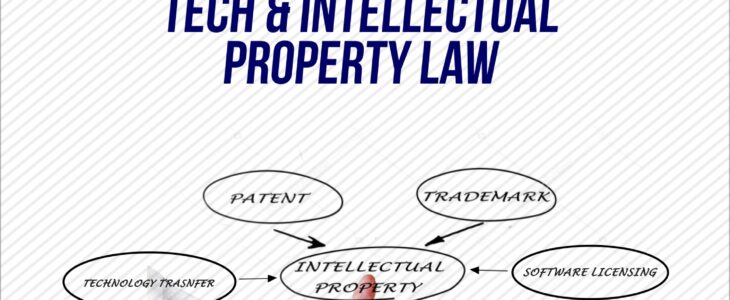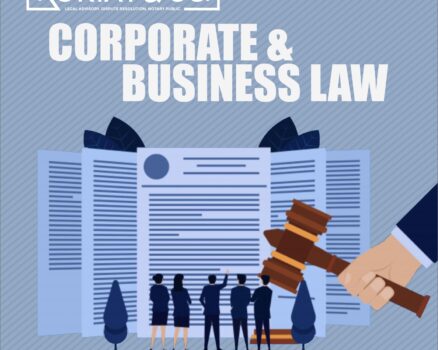
As businesses strive to distinguish themselves in the marketplace, the risk of deceptive practices (knowingly or unknowingly) by competitors increases. The intellectual property law offers protection to registered trade mark. However, owners of unregistered trade mark are not without some remedies if their mark has acquired some good will in the course of commerce. At common law, a brand owner may sue for tort of passing off in the event of any infringement even if such brand is not a registered trademark. Passing off, originally a common law tort, is designed to protect a person’s business reputation and goodwill from unfair trade practices and sharp practices by imposters or impersonators. Please note that the Supreme Court in Patkun Industries Ltd v. Niger Shoes Ltd. (1998) 5 NWLR (Pt. 93) 138 held that “passing off” is a statutory right (and not a common law right) having been promulgated in section 3 of the Trade Marks Act, 1965.
1. What is passing off?
Passing off is the false representation of one’s brand, product or business as that of another person. According to the court in Virgin Enterprises Ltd. v Richday Beverages Nig. Ltd (2009) 12 NWLR (Pt. 1151) 136, an action for passing off is an action for deceit for colourable imitation of a mark adopted by a person in relation to his goods which has acquired a distinctive reputation in the market as referring to the goods belonging to or produced by that person only.
In the case of U.K. Tobacco Co. Ltd v. Carreras Ltd. (1931) 16 N.L.R. 1 an action for passing off was successfully brought by the owner of “Bandmaster cigarette” to restrain a competitor, the importer of “Barrister cigarette” on the ground that the consumers were likely to be confused and deceived into believing that both products were of the same origin.
2. What are the forms of passing off?
Passing off occurs in many forms. The common forms are:
(i) Marketing products with another business’ trademark
This form of passing off involves using the name or a name closely resembling the name of another. This could mislead the public into thinking both brands or trades are the same. InNiger Chemists Limited v Nigeria Chemists (1961) All NLR 180, the plaintiffs had an established chemist business using the name “Niger Chemist” while the Defendants established the same business on the same street with the plaintiff using the name “Nigeria Chemist”. The plaintiffs successfully obtained an injunction to stop the Defendant from trading as Nigeria Chemists. Palmer J, quoting Lord Cozens Hardy MR in Ewing v. Buttercup (1917) 2 Ch 1 held: “I know of no authority, and I can see no principle, which withholds us from preventing injury to the plaintiff in his business as a trader by a confusion which will lead people to conclude that the defendants are really connected in some way with the plaintiff or are carrying on a branch of the plaintiff’s business” and thereafter held: ‘That is the danger which can reasonably be foreseen in the present case, namely that people will be misled into thinking that Nigeria Chemists are a branch of, or in some way connected with, Niger Chemists. It is a confusion which leads to deception.”
(ii) Packaging, marketing or trading the infringer’s goods as though of the real owner’s
This involves the marketing of goods using another’s trademark or its imitation. A person engaged in advertising and selling the goods of another business owner as his own, wrongfully profits from the goodwill and reputation of that business owner. See British American Tobacco & v Int’l Tobacco & 2 ors (2006) 5 IPLR 290. In the case of Trebor Nigeria Limited v. Associated Industries Ltd. (1972) NNLR 60, the plaintiff’s action for ‘passing- off’ succeeded because the defendant packaged and marketed its good to resemble those of the plaintiff.
3. What are the elements of a passing-off action?
The necessary elements of a passing-off action, which a plaintiff must prove, are as follows:
- Misrepresentation: A false representation by a defendant in the course of trade
- Goodwill: The false representation is calculated to injure the goodwill of another business
- Damages: The plaintiff has suffered actual damage or is likely to suffer damage to its business or goodwill.
4. What remedies are available to me when my brand is being/has been passed off?
As the general maxim says: where there is a wrong, there exists a remedy. The remedies available to an aggrieved brand owner are as follows:
1. Damages/compensation: You can sue for damages.
2. injunction: You can obtain an injunction restraining an infringer from continuing with the infringing acts
3. Seek an account for profit; or for loss of sales.
4. Destruction of the infringing goods
5. Which court has jurisdiction in passing off actions?
The Federal High Court has jurisdiction over actions for passing off.
According to Section 251(1)(f) of the Constitution of the Federal Republic of Nigeria, 1999 (as amended), the Federal High Court has exclusive jurisdiction over any Federal enactment relating to copyright, patent, designs, trademarks and passing-off, industrial designs and merchandise marks.
Section 3 of the Trademarks Act provides thus
“No person shall be entitled to institute any proceeding to prevent, or to recover damages for the infringement of an unregistered trademark; but nothing in this Act shall be taken to affect rights of action against any person for passing off goods as the goods of another person or the remedies in respect thereof”
Section 7 of the Federal High Court Act amended by the Federal High Court (Amendment) Decree No. 60 of 1991 reaffirms the jurisdiction of the court in respect of any “civil causes and matters, arising from any enactment relating to copyright, patents, designs, trademarks and passing-off, industrial designs…”
A combined reading of the above sections establishes that the Federal High Court has jurisdiction over passing off actions whether arising from infringement of a registered trademark or unregistered trademark.
In Omnia Nigeria Limited v Dyktrade Limited (2007) 15 NWLR (Pt 1058) 576, the Supreme Courtheld that that the Federal High Court has jurisdiction to hear and determine a claim for passing off, whether or not that claim arises from the infringement of a registered or unregistered trade mark.
For an unregistered trademark, a plaintiff must prove that though the trademark is unregistered, it has acquired a reputation in the use of the mark in relation to its goods or business. To establish this, a plaintiff may need to show its sales or track records, business associates, and marketing and advertisement agencies that it deals with. See Soul Publications Limited v Sweet Hearts Publications & A nor (1997) 4 IPLR 42.
6. What must a plaintiff prove in an action for passing off?
To succeed in an action for passing off, a plaintiff must prove the following:
- The trademark distinguishes its class of goods from other similar goods in the market. The mark had become distinctive of its goods in the eyes of the buying public, and by the adoption of the mark by the infringer (i.e. the defendant), the buying public is deceived into believing that the goods of the defendant are that of or from the plaintiff. See CPL Industries Ltd v Glaxo Smithkline & Anor (2011) 6 IPLR 243, Boots Company Ltd v United Niger Imports & Anor (1977) 2 IPLR 56.
- Because of the reputation of the goods, there is goodwill attached to the trademark. In British American Tobacco & v Int’l Tobacco & 2 ors (supra),the court held that in proving passing off, proof of reputation–goodwill is necessary. It is not enough to show that there is a resemblance of goods; the plaintiff has to further prove a reputation of goodwill attached to the goods under the Trade Mark/Name sufficient for members of the public to be misled by the defendant’s conduct into thinking that they are purchasing the goods of the plaintiff.
- Defendant has imitated or adopted plaintiff’s brand name or a feature of the packaging or labelling of its goods. See CPL Industries Ltd v Glaxo Smithkline & Anor (supra)
- That it has suffered or will suffer damage to its business. See CPL Industries Ltd v Glaxo Smithkline & Anor (supra)
7. Is a claim for passing off the same as a trademark infringement claim?
Though closely akin to one another, they are not the same. While the objective of an action for passing off is to protect the goodwill, reputation or business acquired in the use of a trademark, an action for infringement of trademark is to protect the mark itself.. In practice, however, passing off and trade mark infringement are usually joined together as different causes of action in a suit. In Exxon Corporation v. Exxon Nominees Ltd (1989) 2 IPLR 432, Belgore C.J in explaining the difference between passing off and trademark infringement stated thus:
“…, the difference between passing-off per se and breach of Trade Mark is that the former is a common law right which has been violated while the latter is a statutory right being breached.”
In Maclver & Co. Ltd v. Compagnie Francaise de L’Afrique Occidentale (1917) 1 IPLR 1, the Appellants registered a trademark to which they associated a cask being rolled along the ground by one man in respect of goods in class No. 47. The Respondents sought to register a mark in the same Class No. 47, in the form of a cask being coopered by three (3) coopers. The Appellants sued the Respondents for infringement of its trademark and passing off of its business. The courts dismissed the Appellants’ action for infringement because of a lack of similarity in the two marks but found for passing off. The Full Court held that the Respondent’s trademark was calculated to deceive considering the illiterate population of the region who could not, even after a minute explanation, pick out the details in both. Consequently, the Court ordered that the Respondent’s application to register his trademark be refused. Webber J. stated that
“Since the essential feature of both marks was cask, the Defendant’s trademark was calculated to deceive and pass off goods”.
The decision above shows that where action for infringement of trademark may fail on a set of facts, an action for passing off may succeed on the same set of facts depending on goodwill acquired from the reputation of the goods in the use of the trademark.
8. What defences are available to an infringer?
(i) Functional design or package:
Where a functional design or packaging of a good is common to the trade of plaintiff, a defendant can rely on a common design or packaging unique to the trade as a defence for passing off. In J.B Williams Co v Bronnley & Co Ltd (1909) 26 RPC 765 CA, the plaintiff brought an action to restrain the defendant from using the normal shape of a shaving stick container to package his brand of shaving stick. The trial court held that the shape and colour of the box was common to the trade and that the plaintiffs had established no monopoly regarding them.
(ii) Mere descriptive name of the product
Where the name or mark is a mere descriptive name of a product, a claim for passing off will not succeed. In British Vacuum Cleaner Co v. New Vacuum Cleaner Co (1907) 2 Ch 312, the court held that the word “Vacuum Cleaner” could not be trademarked as it only describes an instrument.
(iii) Consent such as a licence given to the defendant by the plaintiff to produce and or market the product is a defence against an action for passing off.




